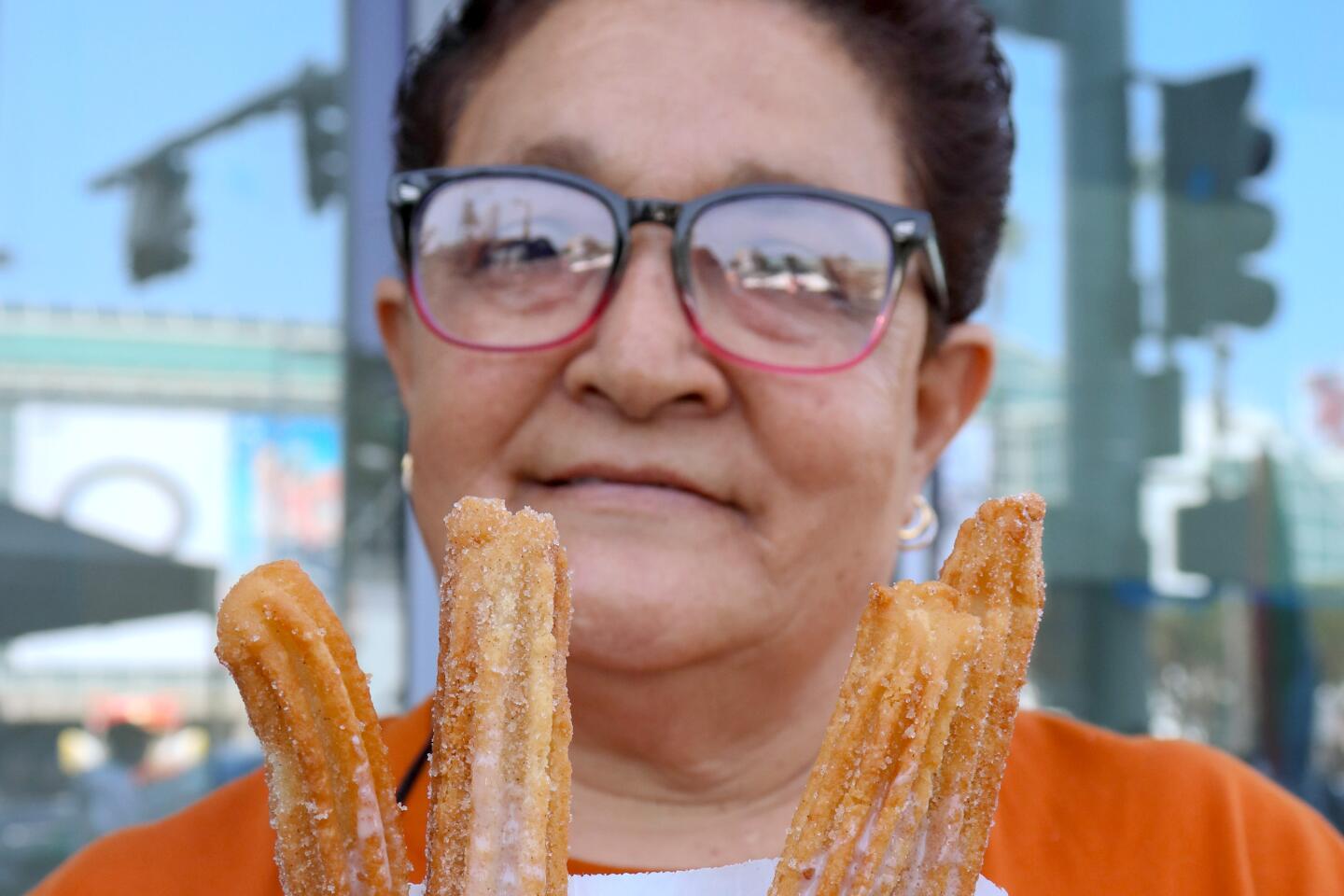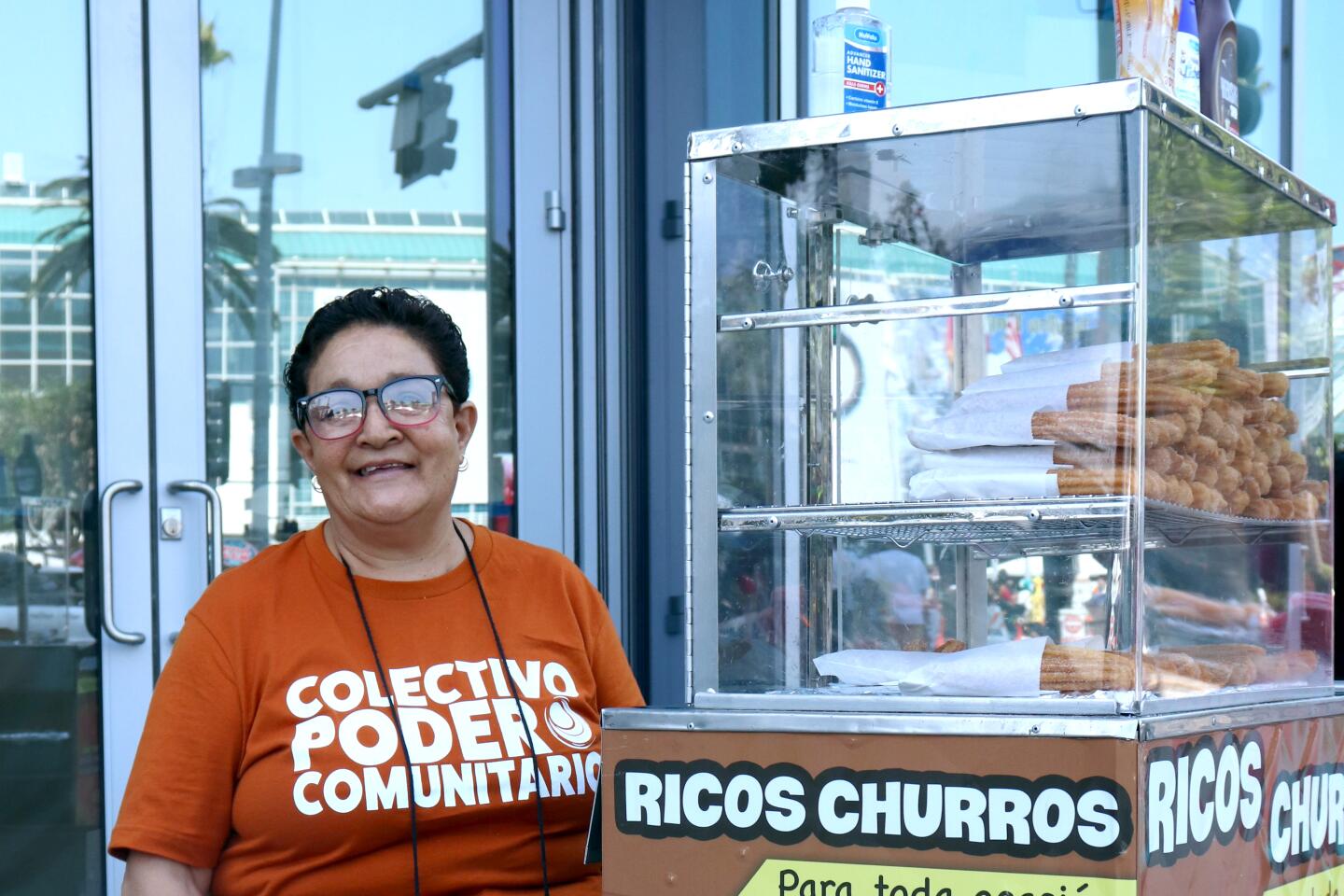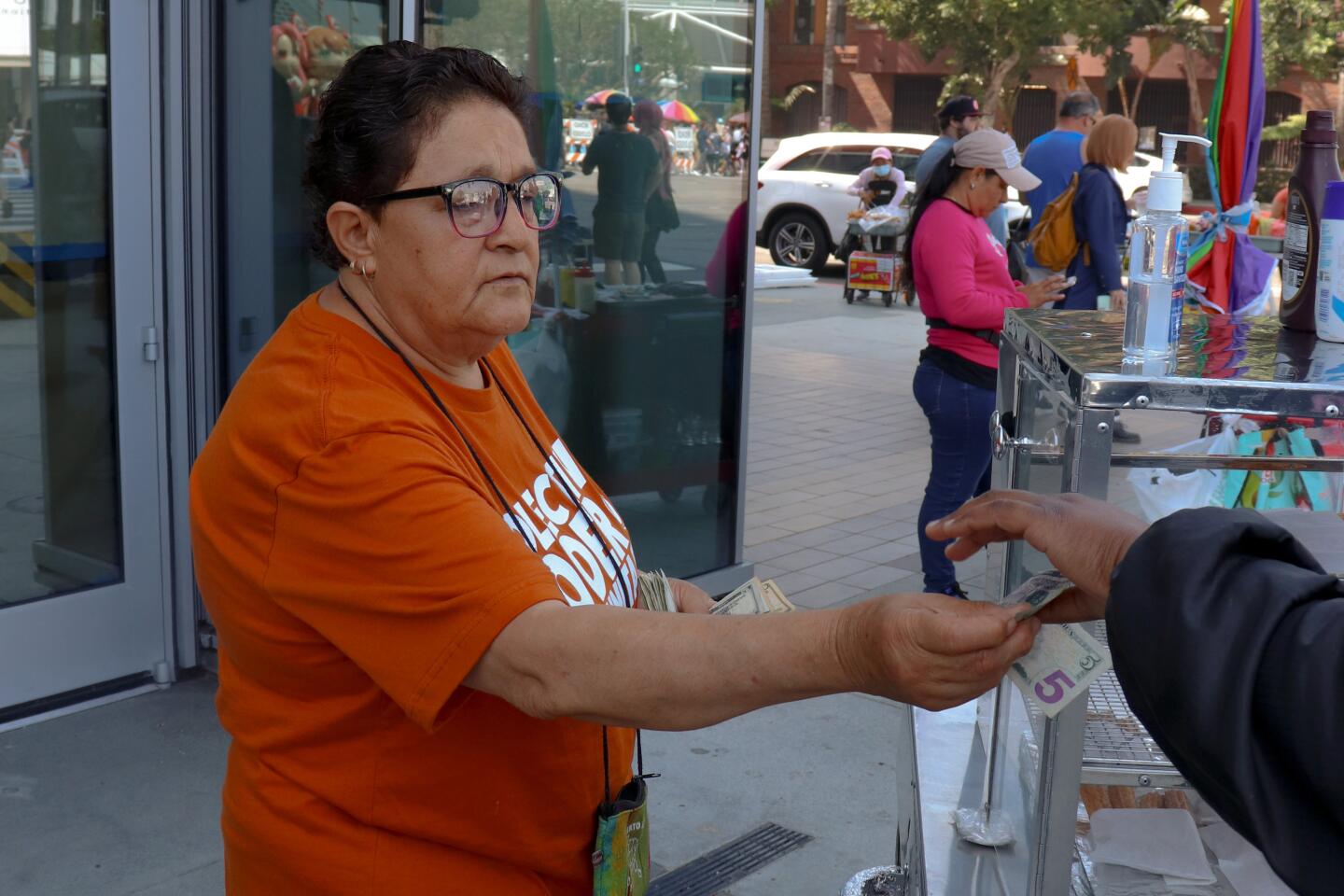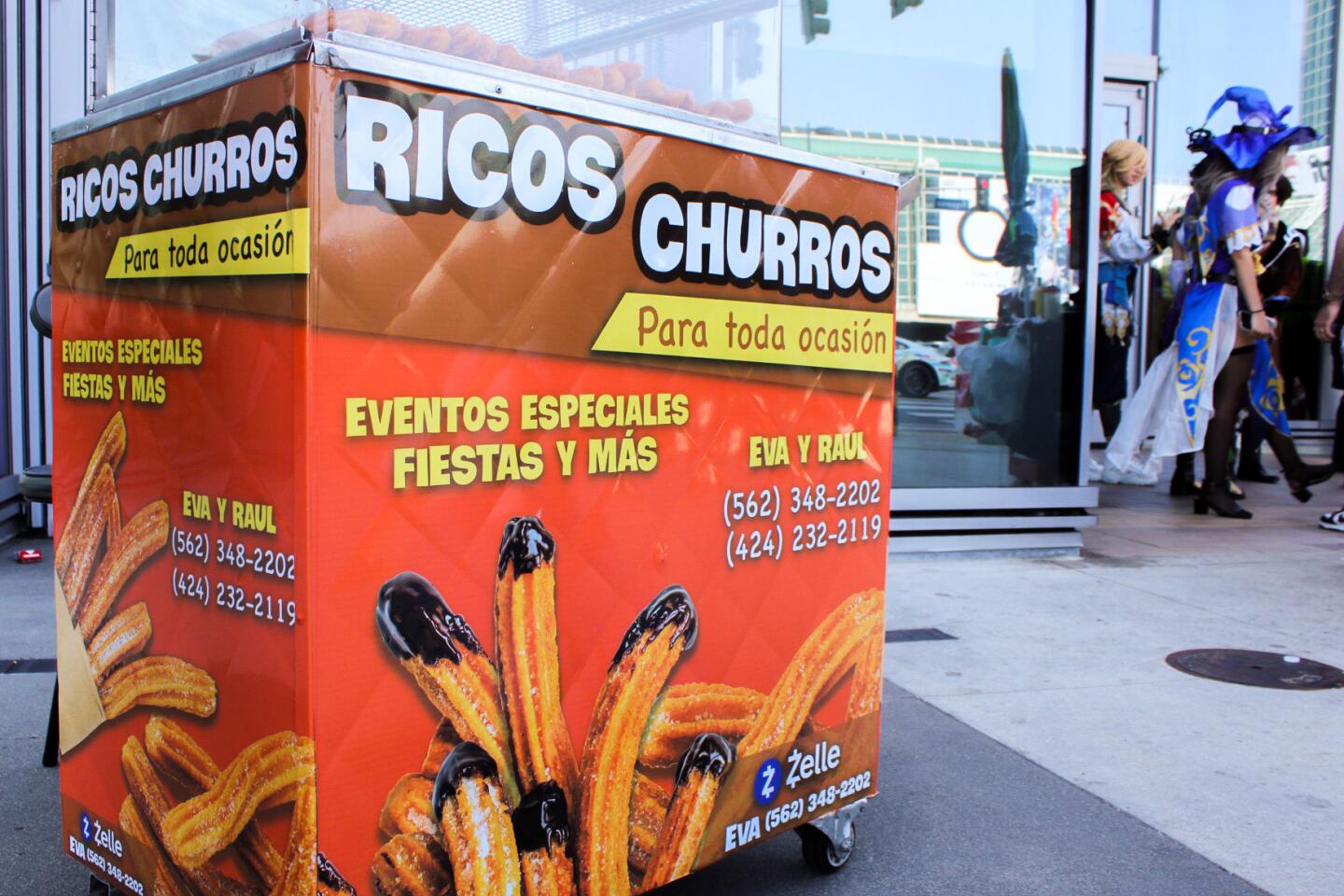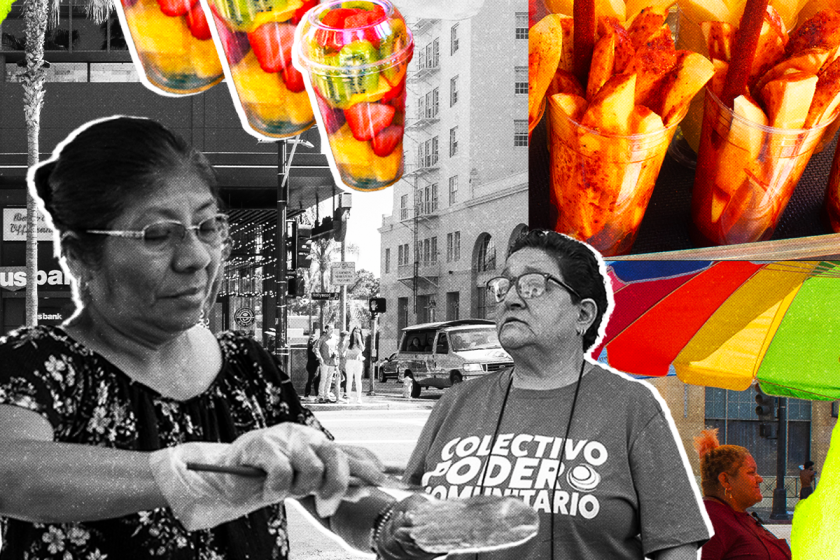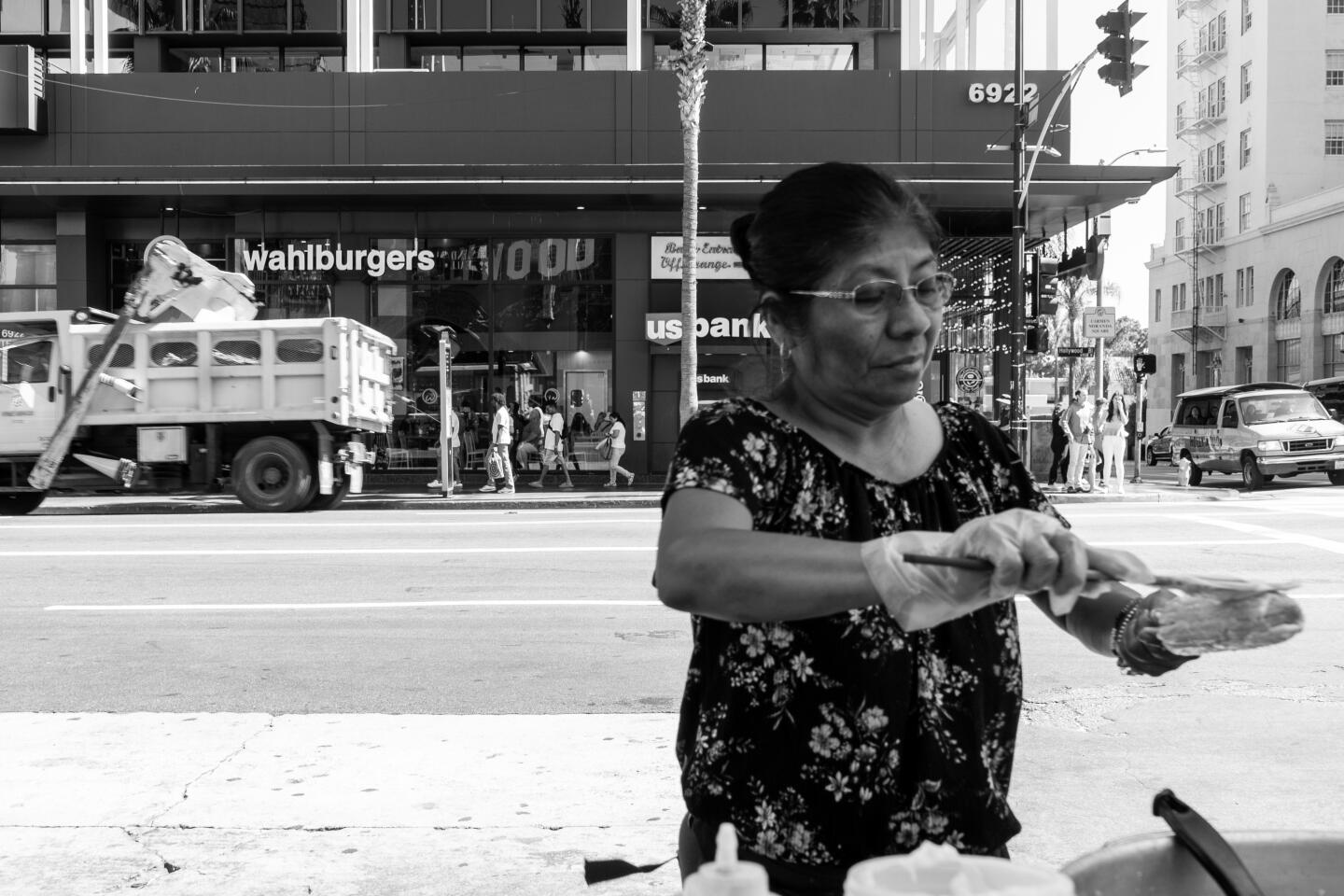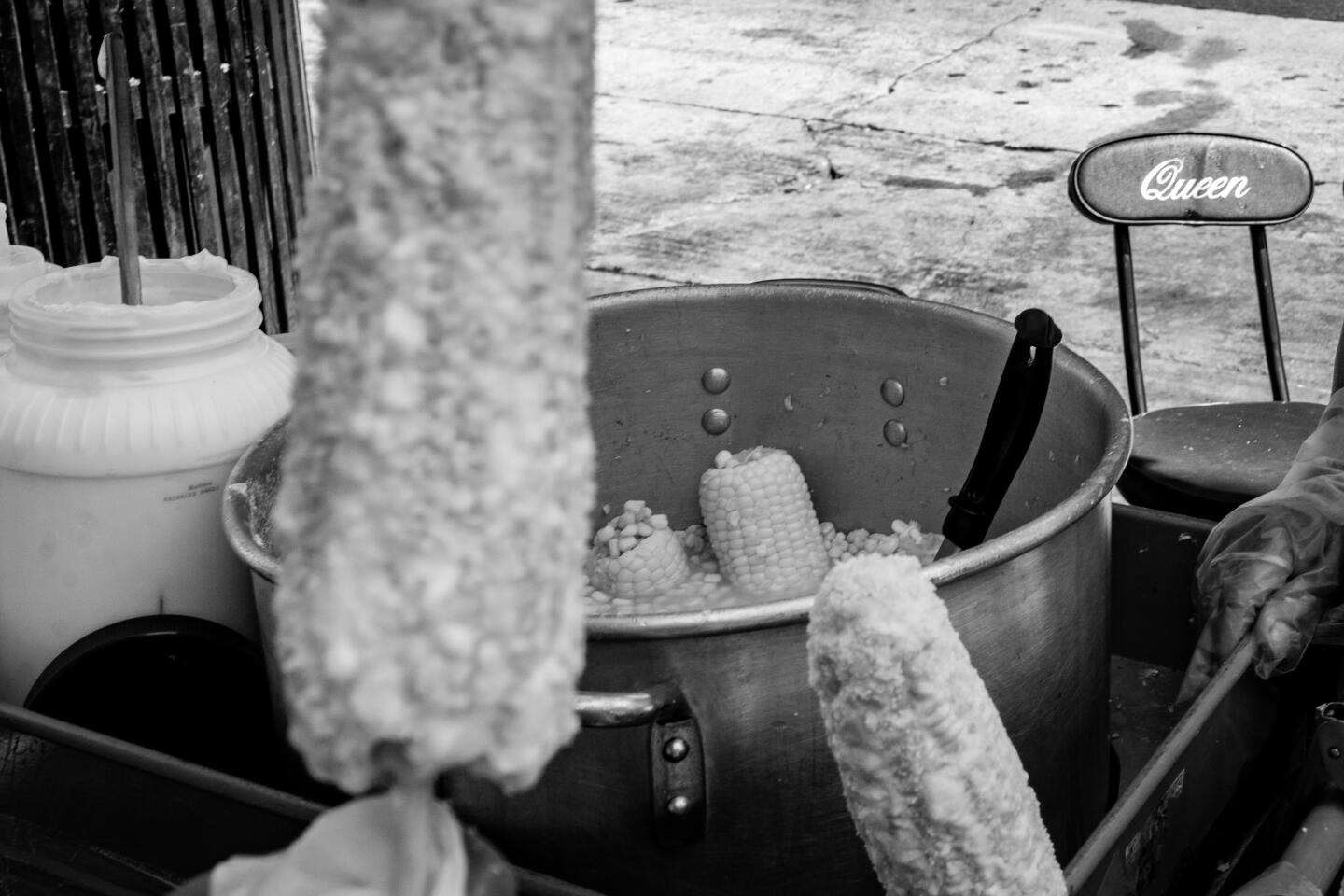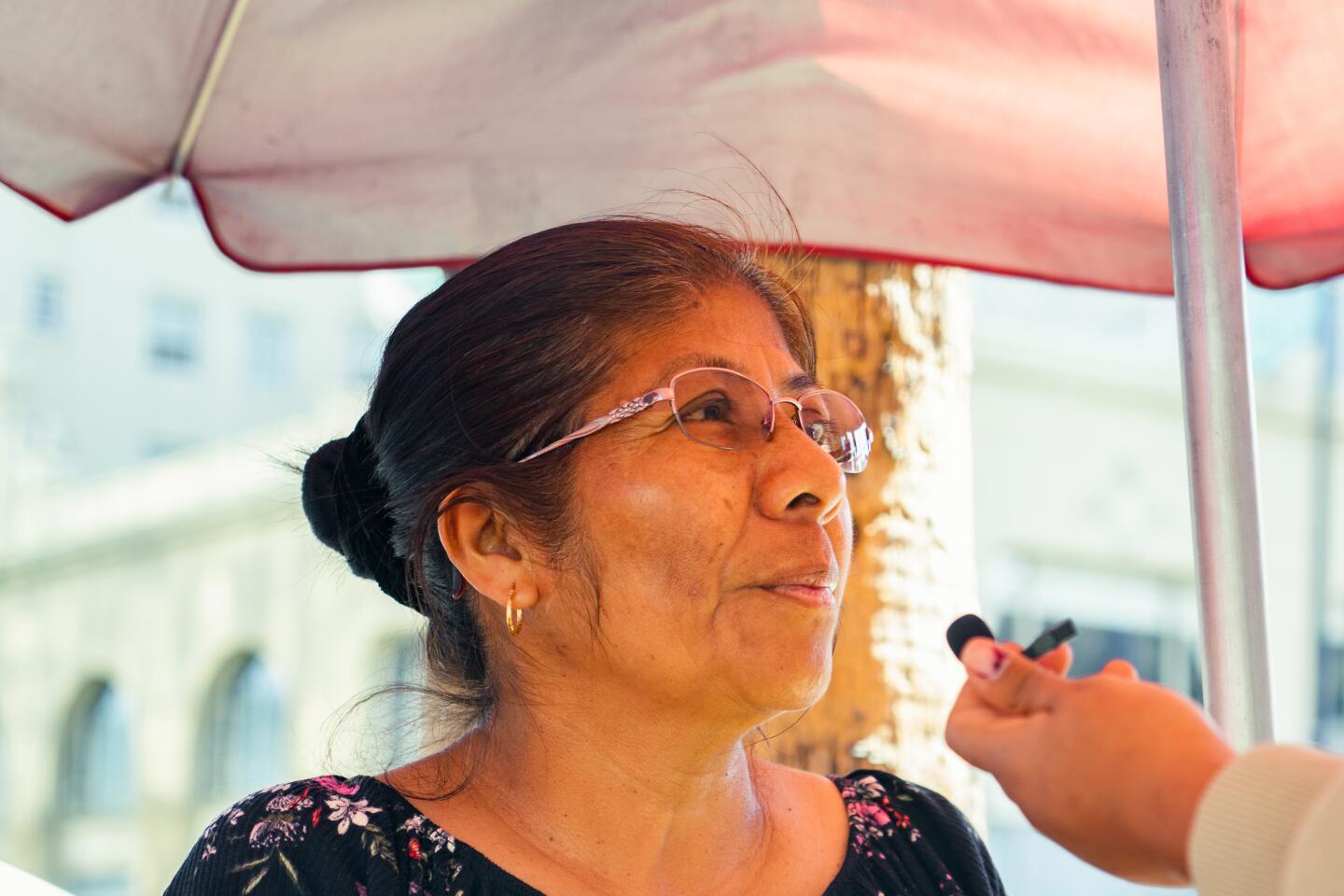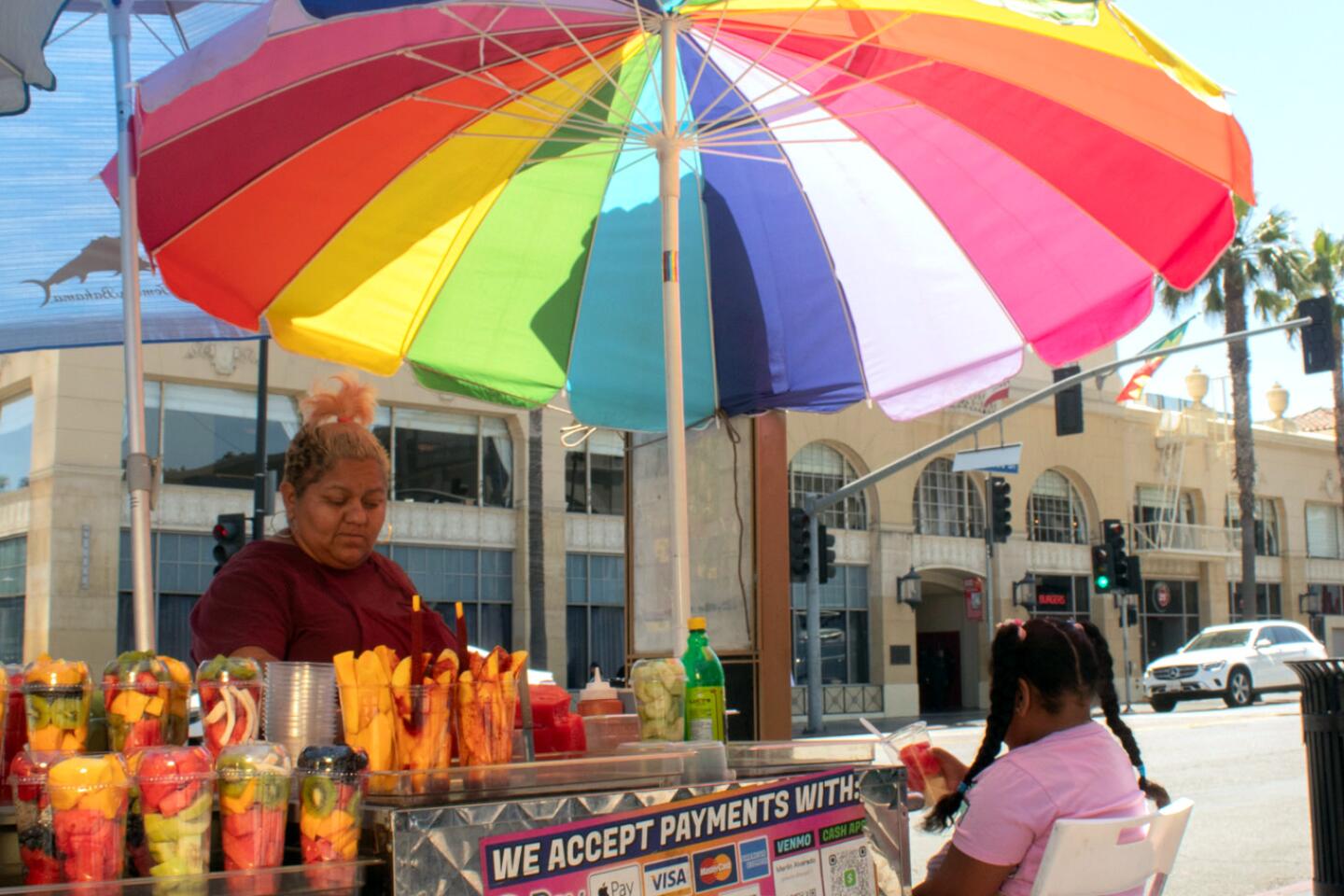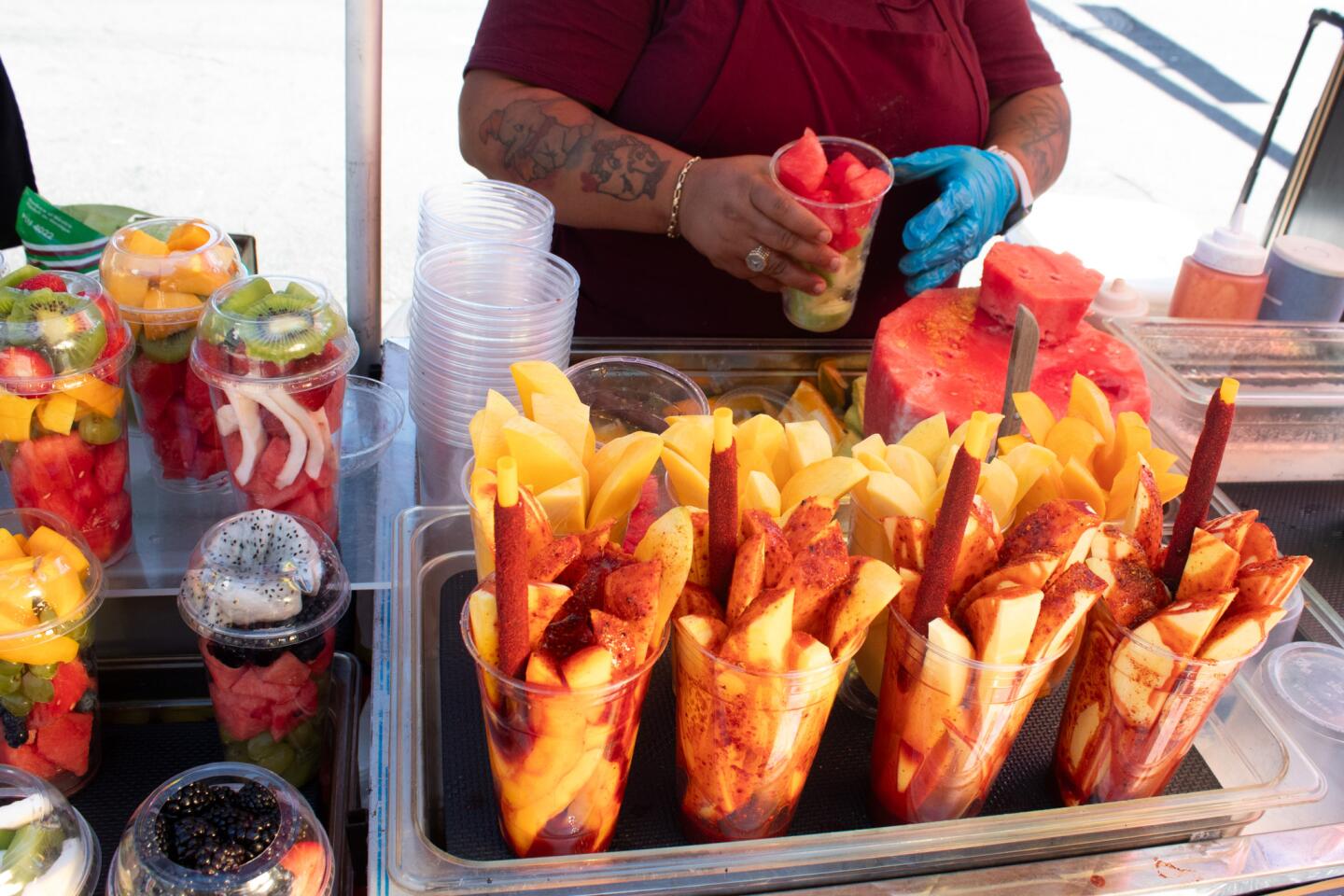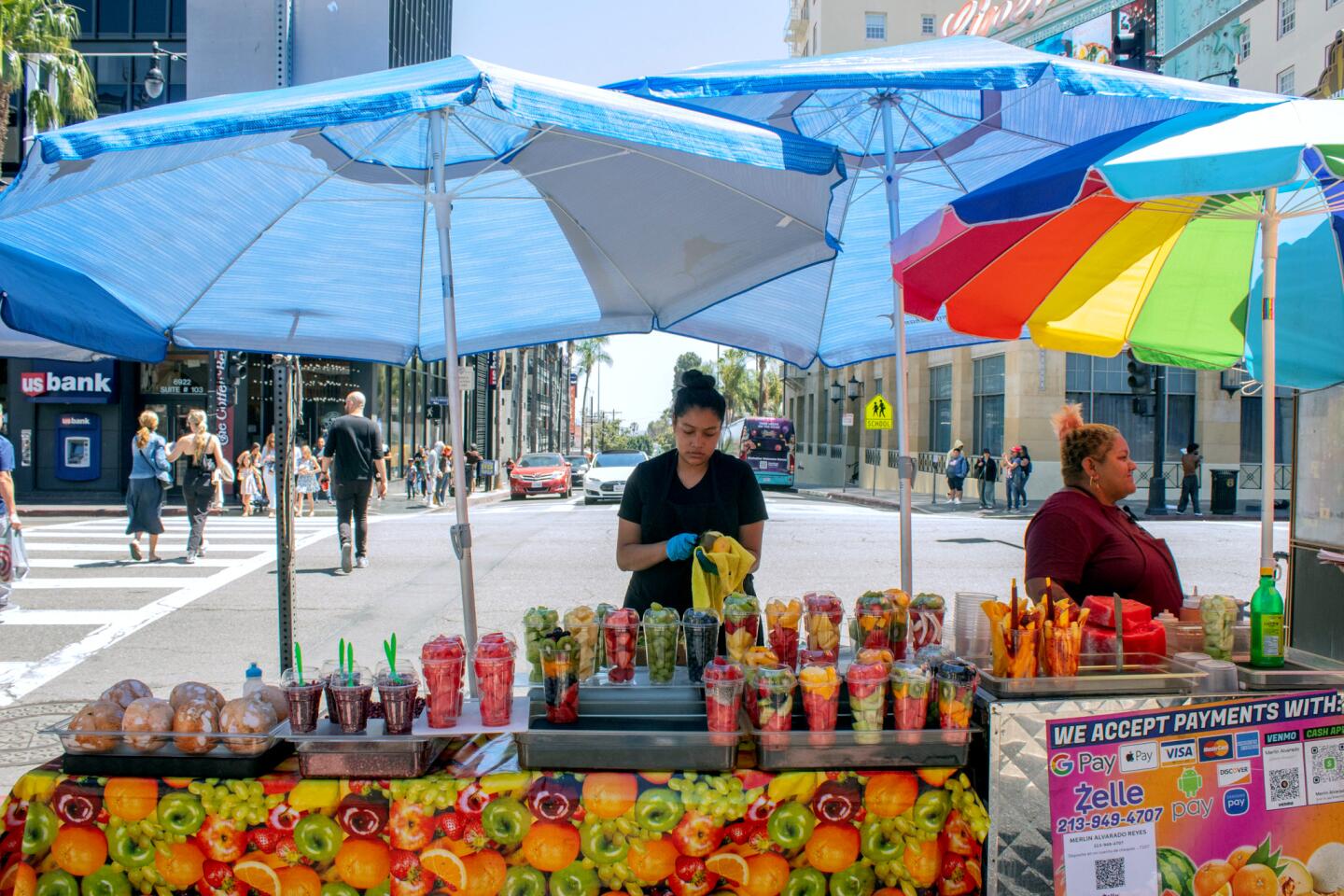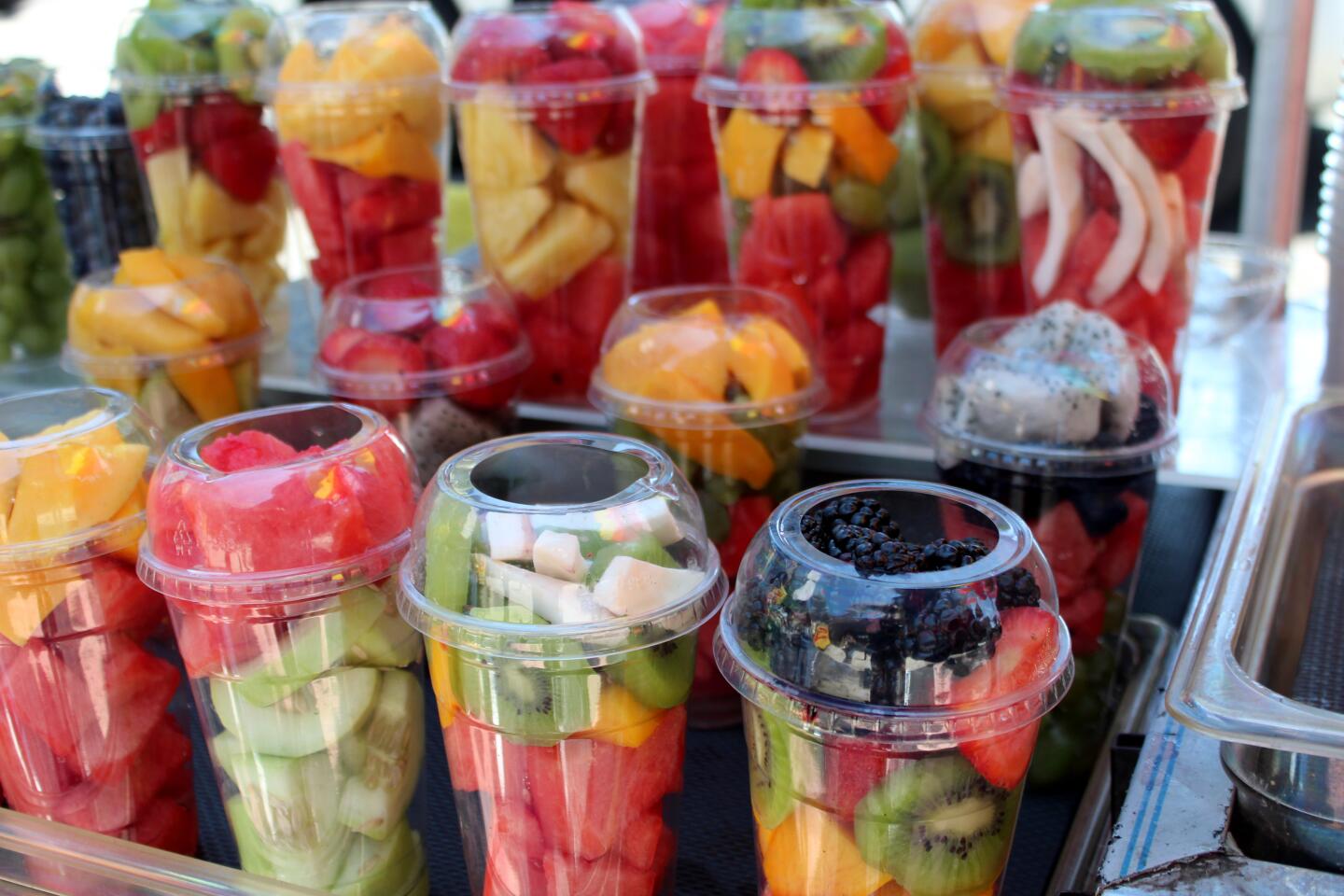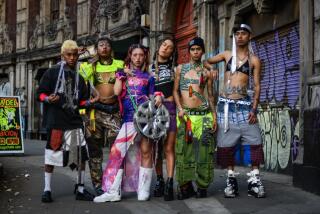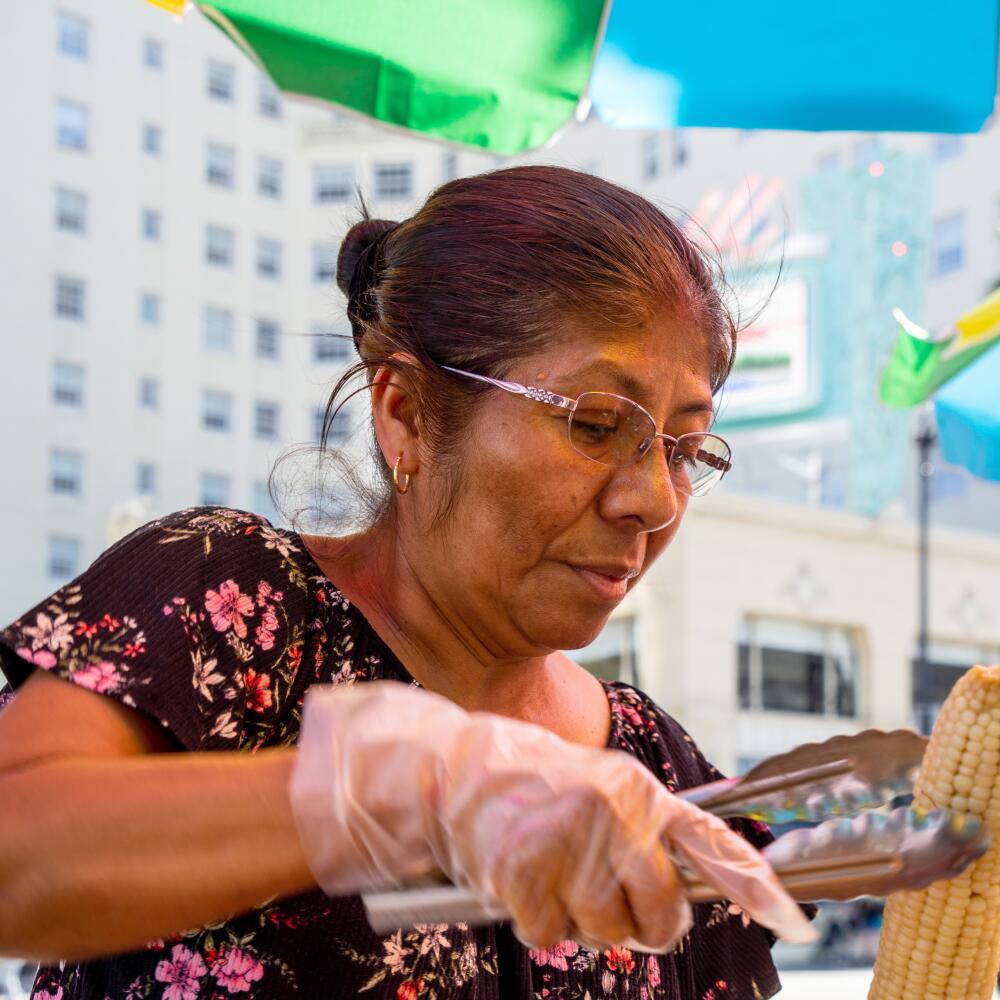
At De Los, we’re making it a mission to highlight the voices, stories and experiences of our community. So we asked young L.A. photographers to capture their communities through their lenses.
As part of a collaboration with Las Fotos Project, a nonprofit that uses photography to mentor teenage girls and gender-expansive youth from communities of color, student photographers featured three street vendors in Los Angeles.
They photographed and interviewed the vendors to share not only their struggles but also their humanity, vibrancy and joy.
“Growing up in L.A., you see street vendors everyday hustling. Day or night, hot or cold, they are always out there making it happen, despite how many tickets they get or how many bad days they have,” student Meyuh Gonzalez said. “My grandma who’s a street vendor herself always told me she’d rather be out there making her own money than to be sitting at home which is something I’ve always respected.”

Get Involved
Eva Orozco
“Es bonito (vender) por que no dependes de nadie,” says Eva Orozco, a street vendor who began her vending journey about 25 years ago.
She describes the times where she would walk down the callejones in downtown L.A. and see vendors who sold a variety of foods: esquite, fruta, aguas frescas and hot dogs. One day, Orozco noticed a churro vendor, which was an unusual sight at the time. Intrigued, she asked where they were sourcing them, but none of the vendors were open to share. Orozco had no idea how to begin selling churros, but she was determined to learn. When her son connected her with one of his friends’ parents, she was finally able to source high-quality churros for everyone to enjoy. At first she vended at those same callejones but has since found a place among the stars on Hollywood Boulevard, where she’s sold churros for six years. The latest struggles, she says, are the rising prices and the competition. “Vendes poco y todo está muy caro.”
Photos by Aranza Trujillo, 18, Uzuri Ray, 15, and Ketzally Alcala, 17
Caption by Ketzally Alcala, 17
At the height of the pandemic, most businesses were forced to alter operations, but for street vendors, who are subjected to zoning permits and rising food costs, things became even more unstable.
Clara Estrada Vasquez
Clara Estrada Vasquez has been a street vendor in the U.S. for about 18 years. Before coming to Los Angeles, she vended in Guatemala. Her sisters were the first of her family to migrate to the U.S. so when she joined them in Southern California, they helped her start out in different areas like the L.A. fashion district. The start of her career wasn’t easy. The police fined and arrested her, even though she felt she was just trying to support her family. She struggled to find other lines of work because she couldn’t speak English. While recent legislative changes have offered greater protections from police harassment, she looks to a future in which she’s free of ticket debt and granted official permission to vend in certain locations.
Photos by Sawyer Sariñana, 16
Caption by Meyuh Gonzalez, 18
With De Los and our new community editor, the Los Angeles Times is taking another step toward improving our coverage of local communities of color.
Merlin Alvarado Reyes
For the past 16 years, Merlin Alvarado Reyes has been a street vendor in Los Angeles, selling fruit, hot dogs, tacos de canasta, churros and more. Growing up in Honduras, she worked with her mother, who was also a vendor, and was constantly surrounded by other vendors. For her, street vending is like riding a bike; once you learn, it’s something you don’t forget. Her experience came in handy when she decided to continue her work in the United States. Being a street vendor on Hollywood Boulevard lets her share a bit of herself and what she sells with tourists from all over the world. She especially likes being her own boss and setting her own work schedule. She never grew up with the perception that many in Los Angeles have — that street vendors and their stands are a problem. Here, her job is difficult, demanding, and can even be dangerous. She’s thankful for the changes in laws that have made street vending legal and have assuaged the fear of police.
Photos by Meadows Stevens, 17, and Lauren Cho, 17,
Caption by Celeste Umana, 18
Additional contributions from Ashley Romero Gomez, 16, and Adria Marin, 18.
More to Read
About this story
The Latinx experience chronicled
Get the Latinx Files newsletter for stories that capture the multitudes within our communities.
You may occasionally receive promotional content from the Los Angeles Times.
